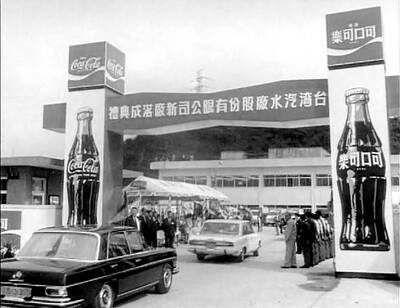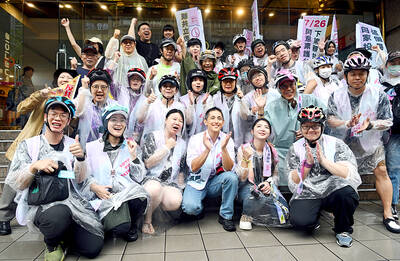If Hao Jiang Tian (田浩江) were just another successful opera singer, his autobiography probably wouldn’t stir much interest. In fact, it most likely wouldn’t have been published at all, because he is not exactly a household name.
What sets the Chinese-born bass apart are the extraordinary hurdles he had to overcome to even perform professionally in the West, let alone become a regular at the Metropolitan Opera.
That story, which takes him from the dark days of the Cultural Revolution to the often unforgiving opera world, is at the heart of his new memoir, Along the Roaring River: My Wild Ride From Mao to the Met.
It is a tale of talent, persistence and luck, as well as timely assistance from a variety of people, including strangers and friends of friends, such as Martha Liao, a generous Denver geneticist who helped him come to Denver and who ultimately became his second wife.
Tian earned a master’s degree from the University of Denver in 1987 and lived in Denver for a while afterward, including three years as pianist and singer at Wang’s Mandarin House Restaurant. He now lives in New York City.
In addition to opera fans, this book should hold particular appeal for scholars and anyone else interested in Mao Zedong (毛澤東) and the history of communist China, because it offers an unusually evocative and personal view of the country from the inside.
Born in 1954, Tian lived through the Cultural Revolutions’ brutal upheaval, and witnessed such horrific events as a violently squelched uprising on April 5, 1976, in Tiananmen Square following Zhou Enlai’s (周恩來) death.
“The screams and the moans were horrifying,” Tian writes. “In the chaos, I put on my red armband and ran. I was running in the direction of the Chinese Revolutionary History Museum, when I noticed that the attackers were dragging their bloody victims in that same direction, piling their bodies under a pine tree.
“Three guys pulled a man by his hair, his eyeball hanging out its socket, and threw him atop the others.”
Tian’s parents, prominent musicians and high-ranking members of the military, suffered political disgrace and a 12-year exile from Beijing, and he was forced to work in the Beijing Boiler Factory after his graduation in 1970.
As might be expected, music runs through his life and through this book, from the piano lessons he despised as a child to a transformative performance at the Metropolitan Opera he attended just hours after his arrival in the US in 1983.
If there are any surprises, it might be the degree of prejudice that Tian faced as a Chinese singer. He writes, for example, of a time when a French director wanted him to shave his goatee and mustache because he looked “too Chinese.”
“The odds were stacked against us for many reasons ... not all of them related to skill,” he writes. “Too many people in the business thought that Asian singers could not master this form or that audiences would not wish to see or hear Chinese people in Western roles.”
Written in conjunction with author and journalist Lois B. Morris, the book has a natural, conversational feel. And based on the half-dozen or so exchanges I’ve had with Tian, it effectively conveys his personality and voice.
If the travails of his early life make for the most compelling reading, the book ends on a reassuringly upbeat note — a happy marriage, supportive circle of friends and top-level operatic career.

July 28 to Aug. 3 Former president Chiang Kai-shek (蔣介石) reportedly maintained a simple diet and preferred to drink warm water — but one indulgence he enjoyed was a banned drink: Coca-Cola. Although a Coca-Cola plant was built in Taiwan in 1957, It was only allowed to sell to the US military and other American agencies. However, Chiang’s aides recall procuring the soft drink at US military exchange stores, and there’s also records of the Presidential Office ordering in bulk from Hong Kong. By the 1960s, it wasn’t difficult for those with means or connections to obtain Coca-Cola from the

No one saw it coming. Everyone — including the Chinese Nationalist Party (KMT) — expected at least some of the recall campaigns against 24 of its lawmakers and Hsinchu Mayor Ann Kao (高虹安) to succeed. Underground gamblers reportedly expected between five and eight lawmakers to lose their jobs. All of this analysis made sense, but contained a fatal flaw. The record of the recall campaigns, the collapse of the KMT-led recalls, and polling data all pointed to enthusiastic high turnout in support of the recall campaigns, and that those against the recalls were unenthusiastic and far less likely to vote. That

Taiwan is today going to participate in a world-first experiment in democracy. Twenty-four Chinese Nationalist Party (KMT) lawmakers will face a recall vote, with the results determining if they keep their jobs. Some recalls look safe for the incumbents, other lawmakers appear heading for a fall and many could go either way. Predictions on the outcome vary widely, which is unsurprising — this is the first time worldwide a mass recall has ever been attempted at the national level. Even meteorologists are unclear what will happen. As this paper reported, the interactions between tropical storms Francisco and Com-May could lead to

A couple of weeks ago the parties aligned with the People’s Republic of China (PRC), the Chinese Nationalist Party (KMT) and the Taiwan People’s Party (TPP), voted in the legislature to eliminate the subsidy that enables Taiwan Power Co (Taipower) to keep up with its burgeoning debt, and instead pay for universal cash handouts worth NT$10,000. The subsidy would have been NT$100 billion, while the cash handout had a budget of NT$235 billion. The bill mandates that the cash payments must be completed by Oct. 31 of this year. The changes were part of the overall NT$545 billion budget approved